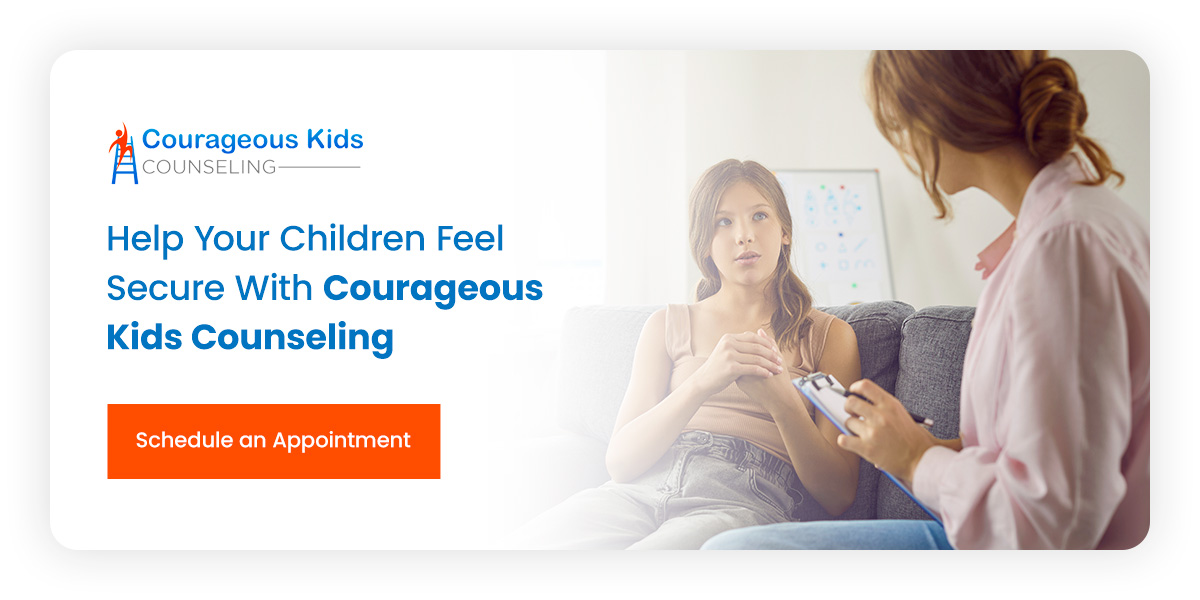Navigating the delicate waters of divorce is challenging, but the journey becomes even more intricate when breaking the news to your children. Addressing this life-altering event with sensitivity, clarity and positivity is essential. In this guide, we will explore how you can tell your kids about divorce in a way that empowers and supports them.
Table of Contents
Understanding Divorce
Seventy-two percent of divorces happen during the first 14 years of marriage, meaning most divorces affect children while they are growing up. Many divorced adults remarry, but 40% of these remarriages also end in divorce. Because of these factors, children may face many family realignments.
Divorce can be a challenge for many families in the following ways:
- Economic security: Children living through divorce might experience a lack of financial support from inadequate child support.
- Emotional security: Children might yearn for their parents after a divorce.
- Cognitive and academic progress: Post-divorce, children might face academic challenges.
- Physical health: Emergency room usage for children in non-nuclear families is notably higher.
- Emotional distress: Children living with divorce may struggle to feel and name their emotions.
How Divorce Looks to Children
To children, divorce can often feel like their world is turning upside down. They might perceive it as:
- A sudden shift in daily routines.
- Less time with one or both parents.
- Changes in living situations or schools.
- Potential loss of friends or support systems.
The Effects of Divorce on Children
Understanding the effects of divorce on children helps you approach the conversation with empathy, both while in therapy and at home. While each child and situation is unique, common feelings children might experience include:
- Confusion or misunderstanding about their family’s status.
- Concerns about being at fault.
- Worries about the future, like where they’ll live or go to school.
How to Tell Your Kids About Divorce
Choosing a moment when you can provide your full attention and your child feels safe and comfortable is essential. These tips can help you approach the topic:
- Select the right time: Knowing when to tell your kids about the divorce is crucial, so choose a moment when they’re relaxed and there’s ample time for discussion.
- Unite as parents: Both of you should be present whenever possible to showcase unity and offer a united front of love and support for your kids.
- Use positive language: Frame the conversation with positivity. Instead of “splitting up,” consider saying, “making a change for our family.”
- Be direct and honest: It’s essential to be straightforward — avoid complex explanations. Simplify the message, but ensure it’s truthful.
- Empower your child: Let them know their feelings are valid and encourage open communication. Remind them that both of you will always be there for them.
- Stay active in their lives: Ensure you both remain active in your child’s life. This consistent presence reassures the child of your continual love and support.
Help Your Children Feel Secure With Courageous Kids Counseling
Facing the reality of talking to your children about divorce can be more manageable when you have a plan. You can support your children with empathy, positivity and a proactive approach. Always remember, this is about the change, and your children need time to adapt and grow from this favorably.
If you or someone you know is going through a divorce, reach out for guidance as needed. At Courageous Kids Counseling, we’re here to support and guide your family every step of the way. Contact us to schedule a child therapy appointment.



